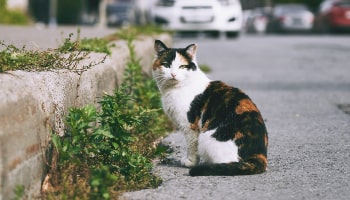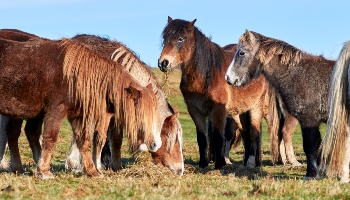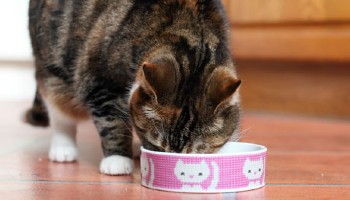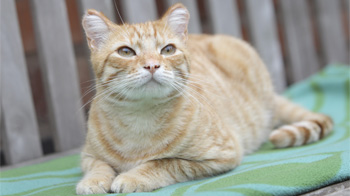Why feeding other people's pets is bad for them
Feeding someone else's pet usually comes from good intentions and is considered a nice thing to do for an animal. Although it's a lovely idea, there are reasons why this can be damaging for the animal.
Dogs aren't as much of an issue as the owner is usually with their pet when out in public, but for horses grazing in fields by public footpaths and cats roaming the streets it's easier to be tempted to give them a little treat.
Horses
It's great seeing horses when you're out and about and people love to interact with them. However, one thing we want the public to be aware of is not to feed a horse without the owner's permission.
Horses may be on specialist diets to control issues such as laminitis or obesity, and food that might seem innocent to the general public can actually be highly dangerous to horses.
Natural grazing and plants
Grazing fields will need to provide the correct nutrition for horses, whilst also making sure that no toxic vegetation can be accessed. Plants that may appear harmless could actually be toxic to horses, as well as common weeds seen in the UK countryside (for example ragwort).
Grass clippings must never be dumped in fields where there might be horses, they can gorge on them very quickly (compared with grazing naturally) causing choke or gut blockages. The clippings also rapidly ferment in the gut making horses seriously ill, therefore the risk of death to a horse from grass clippings is very high.
Horse food needs proper preparation
As horse owners know, even foods which are safe for horses can be lethal if they're not prepared properly – like whole apples – as they can cause obstructions in the horse's throat, resulting in them choking to death.
Food or fingers?!
Do remember that although horses are generally gentle animals, the position of their eyes means they cannot see your fingers if they're taking something from you – and this may result in you receiving a painful bite if they mistake your fingers for food!
Fighting for food
If you feed a horse and there are others present, this can result in competition and you could start a fight. This could result in injury.
Concerned about a horse
If you're worried about horses you see when you're out and about, for example, because you believe they don't have enough to eat, don't feed them but instead contact our cruelty line for advice and help.
If you're a horse owner worried about other people feeding your horses, the British Horse Society provides useful resources for horse owners and landowners, including free downloadable signs.
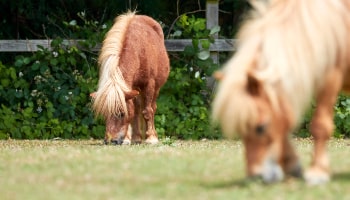
Cats
It isn't always obvious if a cat has an owner or not, but it's important to try and find out before feeding a cat who might be owned.
Cats willingly overeat
Many cats will take advantage of an extra meal even if they're well fed by their owners.It doesn't always mean they're hungry and underfed.
Feeding somebody else's cat can cause a number of problems such as giving the cat something it's allergic to, causing them to eat too much and could stop them from coming home to their owners for meal times.
Causing problems for cat owners
It can be very distressing and frustrating for cat owners when other people are feeding their pets. This means they have no control over what or how much is being fed and may mean their cat doesn't come home as often which can make caring for them properly more difficult.
If your cat is on a special diet, has an allergy or is gaining weight and you're suspecting somebody is feeding them, it may help for them to wear a 'Don't feed me' collar. Ensure any collar worn is a snap-safe quick-release type to avoid nasty injuries.
If you think the cat might be a stray
Sometimes owned cats can be mistaken for strays. It's important to try and find the owner of any cat you think may be a stray including asking a vet to scan for microchip, creating 'found' posters and advertising on social media and other online resources such as Animal Search UK.
You can also try placing a paper collar on the cat saying 'Is this your cat?' and include your phone number, so that if the cat isn't a stray their owner can contact you. Remember to leave plenty of slack (you should be able to place two fingers beneath the collar). If the cat returns without the paper collar and you haven't received any calls, attach a new one – the previous one might have been lost before the cat reached their home or their owner noticed it.
If you're worried about the health of the cat, for example, if they're very thin, you should contact our cruelty line for advice.
